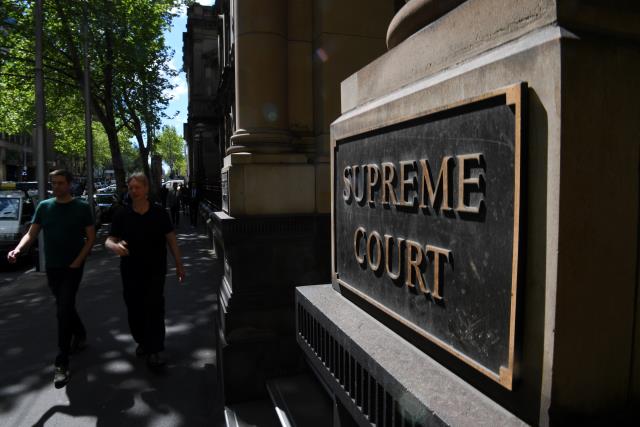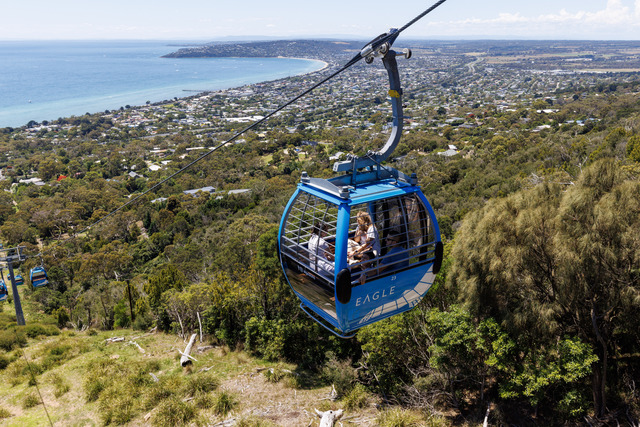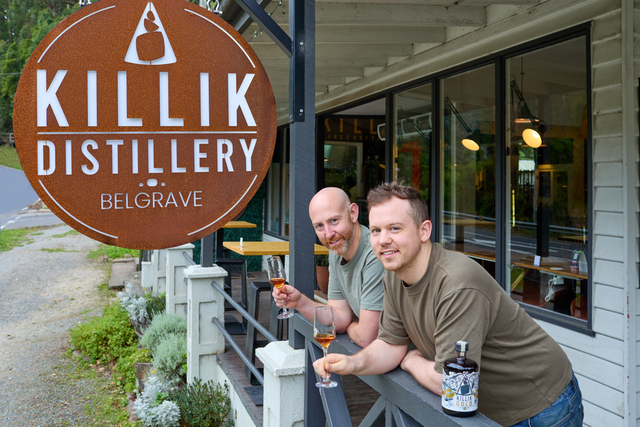Supreme Court justice Melinda Richards has decided to dismiss a case against Yarra Ranges Council which was brought before the court earlier this month.
On Thursday 3 August, the Supreme Court heard from plaintiff Darren Dickson, who sought an injuction to stop the council passing its Monbulk Urban Design Framework and called for a 12-month extension for community consultation on the draft document.
Mr Dickson also argued that the council closing its in-person meetings to the public gallery earlier this year and preventing meeting attendees filming councillors and council staff contravened the Local Government Act II.
Handing down her judgment on Friday 18 August, Justice Richards ruled that the council did not breach democratic principles throughout the consultation process or in its decision to temporarily close the gallery to the public throughout their meetings.
“Mr Dickson does not have standing to seek the remedies claimed,” she wrote.
“He has not shown that he has a special interest in the subject matter of the proceeding. His interest in the UDF and the conduct of Council meetings is no different from that of any member of the public.”
On 20 April, Yarra Ranges Council announced its decision to close its meetings to a public gallery until at least June, citing an “increasing pattern of verbal abuse, intimidation and anti-social behaviour” as its reasoning.
It came after Mayor Jim Child previously adjourned two council meetings after members of the fringe-community group My Place Yarra Valley either interjected from the public gallery or filmed councillors and staff without permission from the chair, the Star Mail previously reported.
At the practice court hearing, Yarra Ranges Council’s manager of design and place, Nathan Islip told the court of the “intimidating” behaviour he experienced at the meeting on 31 January as he approached the front of the gallery to converse with attendees.
“There was talk amongst this as to what I would consider conspiracy theories around 20 minute neighbourhoods, accusing me of trying to lock people up,” Mr Islip said.
“I felt quite unsafe.”
Council meetings were livestreamed online, with members of the public able to attend virtually and access video recordings of the meetings published online.
Attendance registration and identification checks now required for those in attendance to enter the meeting since the gallery was reopened to the public on Tuesday 11 July.
Mr Dickson argued during court proceedings that the online meetings prevented people experiencing financial constraints, unfamiliarity with computers, or a poor internet connection, from accessing a “fundamental aspect of democracy”.
But Justice Richards’ decision noted the Local Government Act allows council meetings to be held in person or online, “or in a hybrid format as they had been held until this point”.
“In my view, council meetings are required to be open to the public in order to further the objective of the Local Government Act that councils are accountable, transparent and engaged with their communities, and to give effect to the public transparency principles and the community engagement principles,” she said.
“This can be achieved by virtual attendance and participation as well as, or as an alternative to, being physically present at a council meeting.”
Justice Richards said while some members of the public may not have been able to access online meetings, there may also be people who are not able to attend council meetings in person due to disability, lack of transport, work commitments or caring responsibilities.
“Those people may find it easier to view and participate in Council meetings online,” she said.
“An additional consideration is that there is space in the public gallery for only a small fraction of the Yarra Ranges community.
“There is no evidence that anyone was disadvantaged or prevented from participating because the meetings were conducted virtually rather than in person.”
Justice Richards said the Council does not have a policy of banning filming in the public gallery.
“As noted, r 75 of the Governance Rules provides that a person must not film a Council meeting without obtaining the consent of the Chair.
“It does not appear that the people who filmed the Council meeting on 11 April 2023 sought the consent of the Chair to do so. Mr Hilson’s evidence was that they filmed the meeting without permission, in a disruptive and intimidatory way.
“In light of the behaviour he described, it is hardly surprising that the Mayor did not agree to them continuing to film the meeting.”
Justice Richards also wrote in her decision that the council “is meeting its obligations” under the Local Government Act and the Charter of Human Rights to engage with the community in relation to the UDF.
“The Council’s meetings have at all relevant times been open to the public.
“The proceeding must be dismissed.”
A Yarra Ranges Council spokesperson said in a statement that it “welcomes” the decision from Justice Richards, who “dismissed the case in its entirety and awarded costs to Council from the plaintiff, Darren Dickson”.
“On 3 August 2023, Yarra Ranges Council defended proceedings at the Supreme Court of Victoria in relation to a number of issues, primarily concerning community engagement for the development of the Draft Monbulk Urban Design Framework, temporarily moving the public gallery for Council meetings to online only and the recently introduced registration process for Council meetings,” the spokesperson said.
“We are pleased that the decision from Her Honour reinforces that Council’s actions were appropriate in all instances and for the betterment of our local communities.
“Council is reviewing Her Honour’s decision of the case and will provide a detailed response in due course.”
Justice Richards has ordered Mr Dickson to pay the council’s costs of the proceeding, and has given Mr Dickson the opportunity to file a written submission if he wishes to persuade the justice to make a different order as to costs.
Mr Dickson was contacted by the Star Mail for comment.







